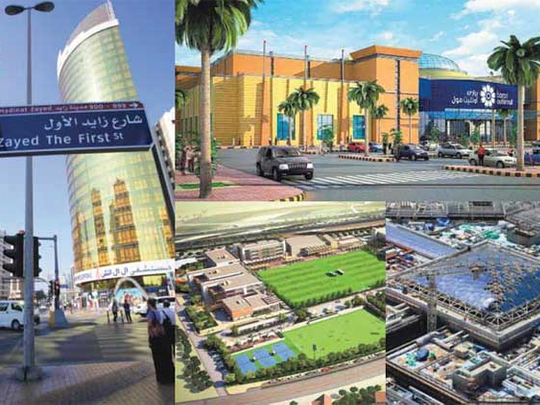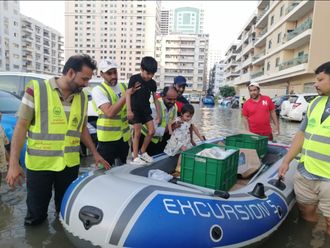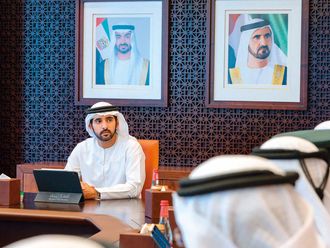
The emirate of Abu Dhabi has been gearing up towards its 2030 vision for quite a while, and a number of developments are scheduled for this year to help meet these targets. While many of them will help ease living in the capital, others will provide residents with new experiences and amenities.
Unique schools
Several new schools are set to open in the capital this year, and at least a few of them will offer educational experiences that are new to the community. One of these is the Cranleigh School in Abu Dhabi’s Saadiyat Island, which is expected to become Abu Dhabi city’s first boarding school. Offering a British curriculum, the institution will eventually accommodate more than 1,600 pupils between the ages of three and 18 years. A premier Indian curriculum school, Mayoor Private School, will also admit pupils from kindergarten level to Grade 7 from April 2014 onwards. It will be located in Al Wathba, and the school will offer a no-schoolbag no-homework education for primary schoolchildren.
New street names
By the end of the year, all streets in the capital are expected to have unique names that also reflect the history and culture of the UAE. The new names are part of the Unified Addressing and Wayfinding Project started last year by the Department of Municipal Affairs. The initiative aims to ease location finding in the emirate. New street names have already been assigned for major thoroughfares in Abu Dhabi city, and the corresponding signs have been put up by the Municipality of Abu Dhabi City. For example, Muroor Road has been renamed as Sultan Bin Zayed Street, whereas Najda Street is now called Fatima Bint Mubarak Street.
No more shisha in residential neighbourhoods
By the end of January, shisha cafes will no longer be located in residential neighbourhoods. Instead, these outlets must be situated at least 150 metres away from residential buildings, populated neighbourhoods, schools and mosques, in adherence with a regulation implemented by the Department of Economic Development. Opening hours for shisha cafes have also been limited to between 10am and 12am, and individuals below the age of 18 years will no longer be permitted to frequent them.
Riding centre for people with special needs
The healing power of horses will be harnessed at a new special needs facility in order to enhance cognitive, social and behavioural skills for people with special needs. It will be run by the Zayed Higher Organisation for Humanitarian Care and Special Needs. In an exclusive interview with Gulf News, the director of the upcoming centre said that it will house 21 horses and stables. Trainers will help patients focus on therapeutic riding and the development of communication skills.
Qasr Al Hosn Festival
Celebrating the oldest building in the capital, the festival that was a big hit among UAE residents in 2013 will become an annual event when its second edition launches on February 20 this year. This year’s festival will run until March 1, and allow visitors on guided tours inside the iconic building as it undergoes renovation. Other elements of the 2013 festival, such as camel and horse rides, as well as traditional handicraft displays, will also be prominent features of the event.
Hafilat
An automated payment card for public transportation will be made available this year for residents to use on board all DoT inner city buses. The cards will be rechargeable and machines stationed on entrances and exits of buses will automatically calculate and deduct the trip fare from each card as it is swiped across the sensor. Residents have noted that this method will reduce the number of illegal passengers who relied on expired Ojra cards for their trips. For those found to have insufficient credit in their cards, an option to obtain a temporary card is available on board the bus itself, through the driver.
Yas Mall
Set to open to the public on March 26 the second largest mall of the UAE will contain a direct link to the world’s largest indoor amusement park, Ferrari World. The mall will host 450 retail units, including four international department stores. The mall also has the largest naturally-lit gathering space in the Middle East and is expected to attract around 25 million visitors in its first year, with a parking space that can accommodate up to 10,000 vehicles at a time.
Abu Dhabi food security project
Abu Dhabi residents may find more locally produced vegetables in the market in 2014 as Dh20 million in funds will be given to farmers for the development of hydroponics agriculture. This form of agriculture saves a significant amount of irrigation water. These contributions come within the framework of a Dh100 million budget to be spent on agriculture and food security from 2014 until 2017. The Abu Dhabi Government’s Abu Dhabi Farmers Service Centre and the Food Security Centre will give loans to farmers to cover 50 per cent of the costs needed for hydroponics projects. The loan can be repaid within five years.
Ruwais Mall in Ruwais, Western Region
Ruwais Mall, the first comprehensive shopping mall in the Western Region, will be opened on January 29, said a spokesperson for the Emke/Lulu Group. The Group will manage the mall. The 300,000-square-feet mall will have a Lulu Hypermarket, a cinema, and around 100 stores of various brands.
Barari Outlet Mall in Al Ain
Barrari Outlet Mall will be opened in Al Ain’s Mazyed Region by the end of 2014, according to a spokesperson for Emke/Lulu Group that will manage the mall. The 400,000-square-feet mall will have a Lulu Hypermarket, 120 international stored and other facilities.
— With additional inputs by Binsal Abdul Kader and Sarah Gamal, Staff Reporters












